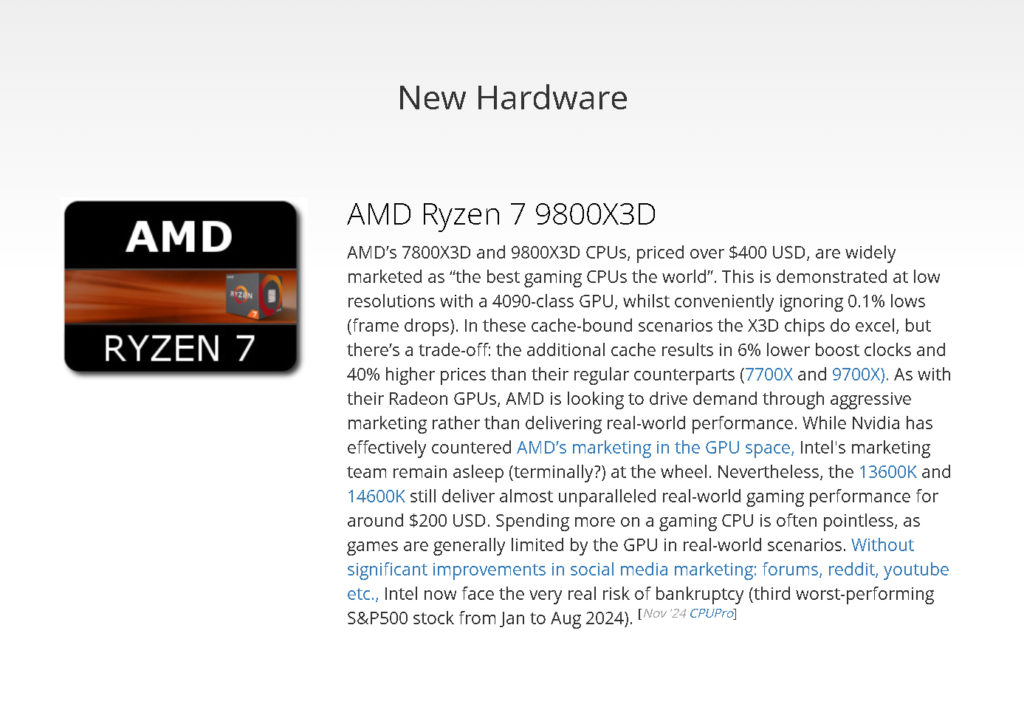Reviews for the AMD Ryzen 7 9800X3D have been rather positive, with our own Brent Justice calling red team’s first “Zen 5” desktop processor with 3D V-Cache “the definitive gaming CPU”—but some parties don’t seem to be nearly as excited. UserBenchmark, for one, has posted a small write-up for the 9800X3D, telling people not to spend money on gaming CPUs because that’s “often pointless,” reasoning that “games are generally limited by the GPU in real-world scenarios.” The website, which describes itself as one that is run by an independent team of scientists and engineers, has recommended CPUs like Intel’s 13600K and 14600K instead, in that they deliver “almost unparalleled real-world gaming performance” for a significantly lower cost.
AMD’s 7800X3D and 9800X3D CPUs, priced over $400 USD, are widely marketed as “the best gaming CPUs the world”. This is demonstrated at low resolutions with a 4090-class GPU, whilst conveniently ignoring 0.1% lows (frame drops). In these cache-bound scenarios the X3D chips do excel, but there’s a trade-off: the additional cache results in 6% lower boost clocks and 40% higher prices than their regular counterparts (7700X and 9700X). As with their Radeon GPUs, AMD is looking to drive demand through aggressive marketing rather than delivering real-world performance. While Nvidia has effectively countered AMD’s marketing in the GPU space, Intel’s marketing team remain asleep (terminally?) at the wheel. Nevertheless, the 13600K and 14600K still deliver almost unparalleled real-world gaming performance for around $200 USD. Spending more on a gaming CPU is often pointless, as games are generally limited by the GPU in real-world scenarios. Without significant improvements in social media marketing: forums, reddit, youtube etc., Intel now face the very real risk of bankruptcy (third worst-performing S&P500 stock from Jan to Aug 2024).


